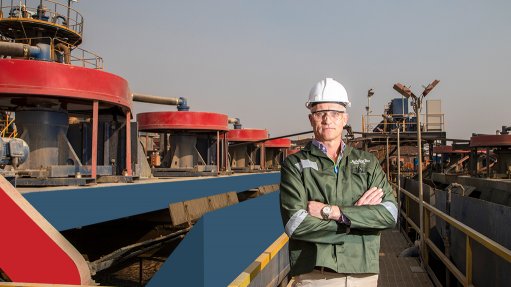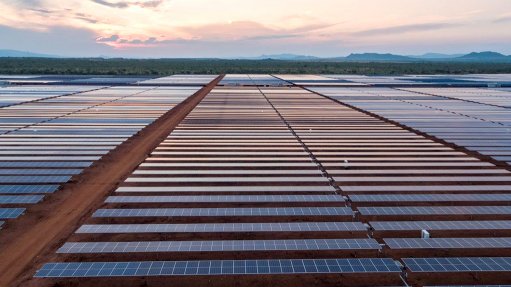AfCFTA support vital for growth


THEMBA SEPTEMBER For aerospace manufacturing, the prospect of improvements in export sophistication across Africa can lead to an enhanced prominence of aerospace manufactured products
The African Continental Free Trade Area (AfCFTA), implemented at the beginning of this year, can potentially boost African aerospace manufacturing by improving export sophistication across Africa, states Commercial Aerospace Manufacturing Association of South Africa chairperson Themba September.
“The importance of the AfCFTA is often overlooked – perhaps because it is so unconventional – but it is a potentially decisive element, as its scope exceeds that of traditional free trade areas, which generally focus on trade in goods. The AfCFTA includes trade in services, investment, intellectual property rights and competition policy, and possibly e-commerce.”
September explains that the AfCFTA is also complemented by other African Union objectives, including the Protocol on Free Movement of Persons, the Right to Residence and the Right to Establishment, as well as the Single African Air Transport Market.
He adds that, if exploited effectively, the AfCFTA could help Africa increase its current intra-African exports, as this share – as a percentage of total exports – has increased from about 10% in 1995 to about 17% in 2017.
September argues that this amount of intra-African trade is low, compared with levels in Europe (69%), Asia (59%) and North America (31%), and that this deficit shows that increased trade will be a key driver of growth in Africa.
He says projections show that the removal of tariffs on goods will increase the value of intra-African trade by between 15%, or $50-billion, and 25%, or $70-billion, by 2040.
Alternatively, the share of intra-African trade will increase by nearly 40%, to more than 50%, between initially implementing the AfCFTA, in the beginning of this year, and 2040.
“For aerospace manufacturing, the prospect of improvement in export sophistication across Africa by enabling more countries to integrate regional and global value chains – and consequently increase the quality of exports – can result in an enhanced prominence of aerospace manufactured products being traded.”
He acknowledges that, while the African aerospace sector can benefit, it is unlikely that African manufacturers will be able to emulate the investments made by developed countries in their aerospace manufacturing capabilities.
The post-World War conditions, which led to the emergence and advancement of current major aerospace manufacturers, are unlikely to repeat themselves for the sake of Africa. Equally, the same kind of scale and centralised power that exists in developed countries is not available in African countries.
September also emphasises the importance of recognition of the power of intellectual property (IP), and the requirement for support of IP, to develop aerospace manufacturing in Africa.
He contends that aerospace is a sector in which meaningful development requires a symbiotic collaboration between the public and private sectors, and that public–private partnerships must be used to effectively grow aerospace manufacturing in Africa.
Further, the European Union and the US in June this year agreed to suspend harmful tariffs on exports for a five-year period, after a 17-year dispute over aircraft subsidies to aircraft manufacturers Airbus and Boeing Company, September adds.
“For Africa, this is significant in the explicit acknowledgement of anti-competitive behaviour in aerospace manufacturing by the dominant players in the market. The acknowledgement should also alert Africa to the need to institute public-sector support for aerospace manufacturing if the ambition to grow the sector is to bear any fruit.”
He points out that US agency the National Aeronautics and Space Administration and the US Department of Defence’s programmes and contracts are estimated at a minimum of $22-billion.
Comments
Announcements
What's On
Subscribe to improve your user experience...
Option 1 (equivalent of R125 a month):
Receive a weekly copy of Creamer Media's Engineering News & Mining Weekly magazine
(print copy for those in South Africa and e-magazine for those outside of South Africa)
Receive daily email newsletters
Access to full search results
Access archive of magazine back copies
Access to Projects in Progress
Access to ONE Research Report of your choice in PDF format
Option 2 (equivalent of R375 a month):
All benefits from Option 1
PLUS
Access to Creamer Media's Research Channel Africa for ALL Research Reports, in PDF format, on various industrial and mining sectors
including Electricity; Water; Energy Transition; Hydrogen; Roads, Rail and Ports; Coal; Gold; Platinum; Battery Metals; etc.
Already a subscriber?
Forgotten your password?
Receive weekly copy of Creamer Media's Engineering News & Mining Weekly magazine (print copy for those in South Africa and e-magazine for those outside of South Africa)
➕
Recieve daily email newsletters
➕
Access to full search results
➕
Access archive of magazine back copies
➕
Access to Projects in Progress
➕
Access to ONE Research Report of your choice in PDF format
RESEARCH CHANNEL AFRICA
R4500 (equivalent of R375 a month)
SUBSCRIBEAll benefits from Option 1
➕
Access to Creamer Media's Research Channel Africa for ALL Research Reports on various industrial and mining sectors, in PDF format, including on:
Electricity
➕
Water
➕
Energy Transition
➕
Hydrogen
➕
Roads, Rail and Ports
➕
Coal
➕
Gold
➕
Platinum
➕
Battery Metals
➕
etc.
Receive all benefits from Option 1 or Option 2 delivered to numerous people at your company
➕
Multiple User names and Passwords for simultaneous log-ins
➕
Intranet integration access to all in your organisation



















